Who most often holds working meetings in Russia? Yandex has discovered some curious patterns

Yandex 360 analysts studied how often employees in various industries schedule work meetings and discovered unexpected trends. It turned out that IT, financial sector and non-profit organizations hold the most meetings. Utility workers meet eight times less often than IT workers.
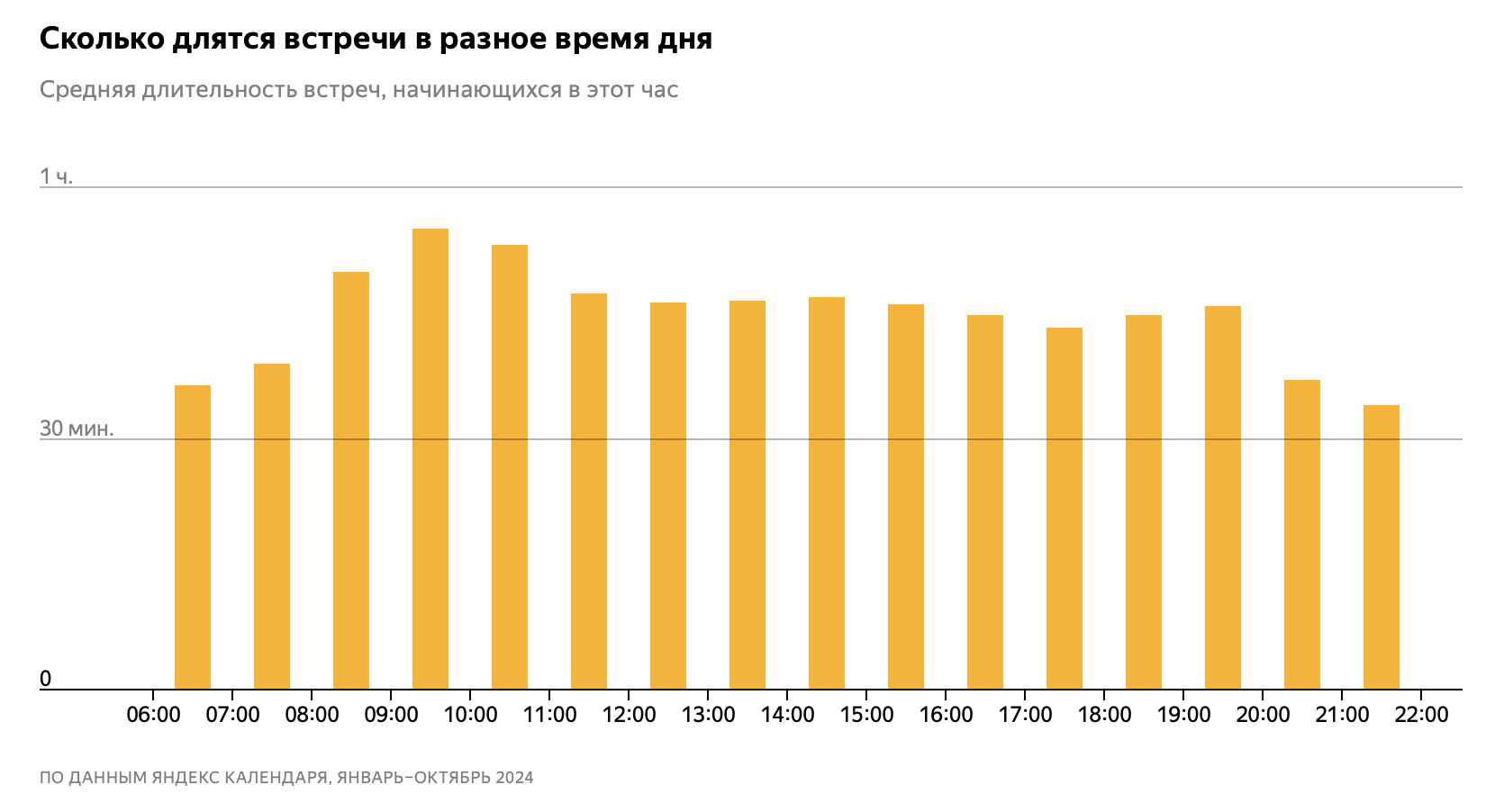
.
The most popular duration of meetings is 30 minutes. Half of all meetings in companies last that long. Hour-long meetings account for another third, and longer or shorter formats are less common. Interestingly, people prefer to start meetings at the top of the hour – these meetings are almost three times more common than those that start in the middle of the hour.
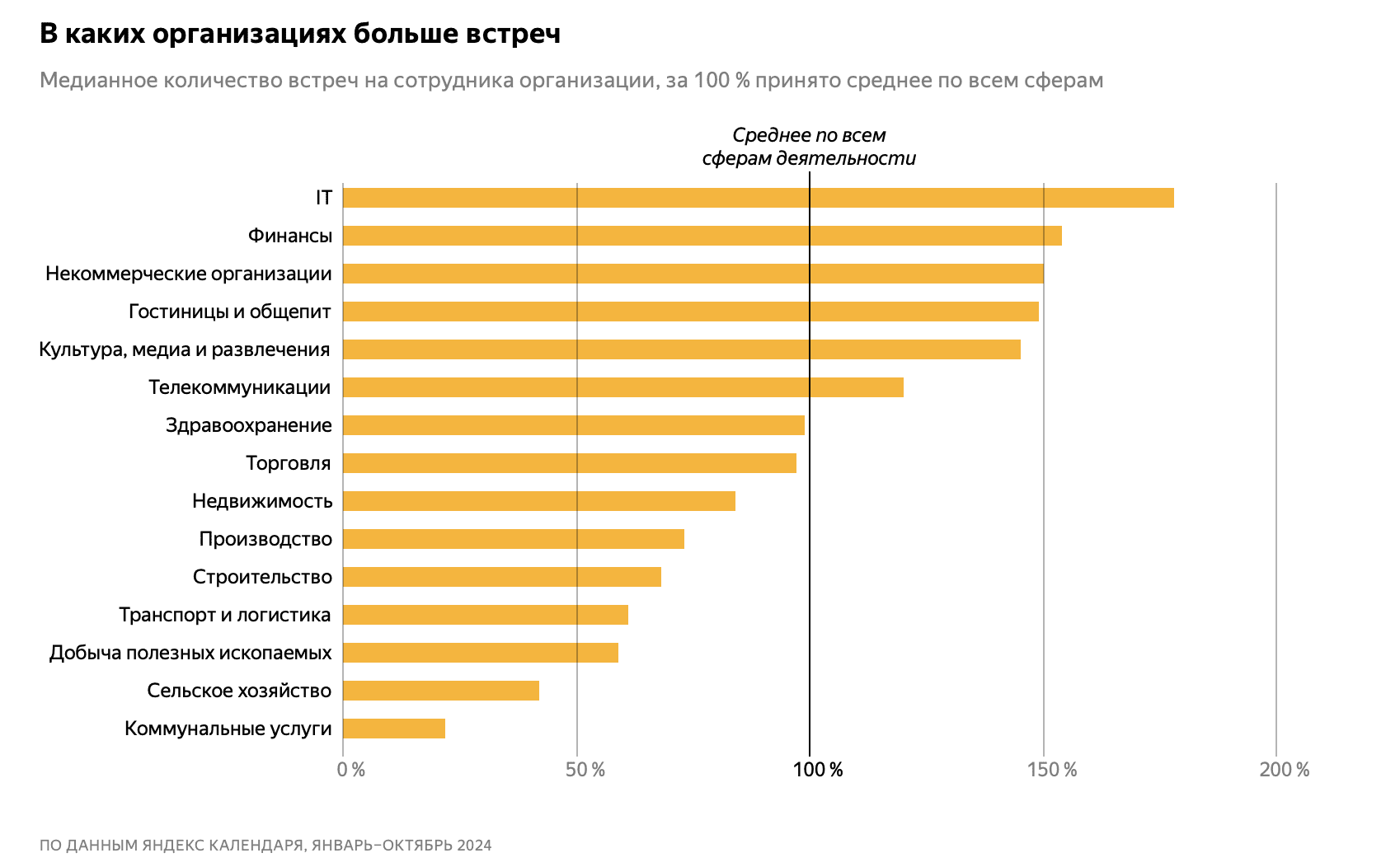
.
The time of day also affects the length of discussions. Early meetings (before 9:00 am) and late meetings (after 6:00 pm) tend to be shorter than standard daytime meetings. Utilities, agriculture and manufacturing workers are the first to get to work, while IT, telecoms and culture and entertainment workers are the latest to start meetings. The longest discussions are recorded in the morning hours – from 9:00 to 11:00.
At the end of the day, it is the first to start work.
The average duration of meetings by city is practically the same. In Moscow and St. Petersburg it exceeds 50 minutes, while the shortest meetings are held in Omsk, where they last an average of 44 minutes.
Average duration of meetings by city is almost the same.
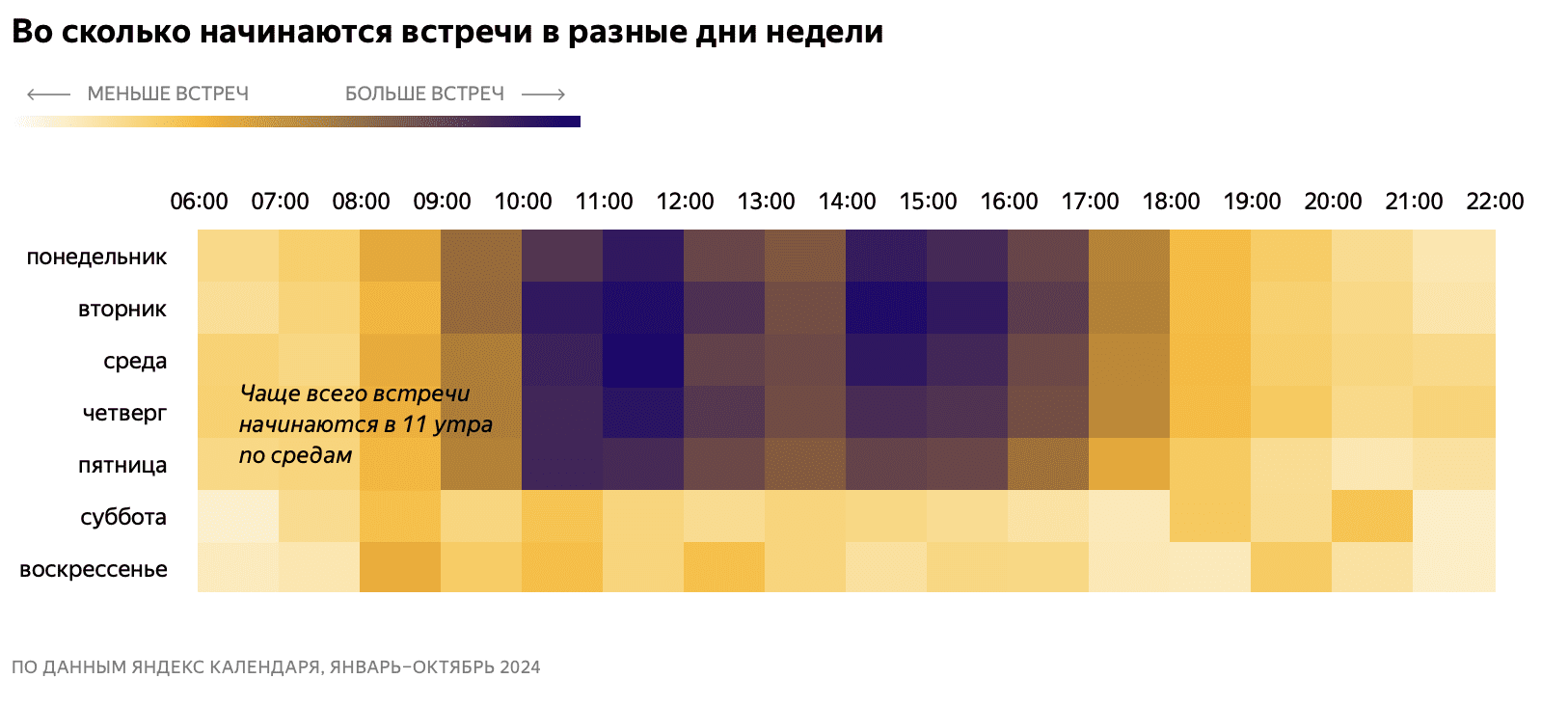
.
It is interesting that seasonality does not affect the schedule of meetings: regardless of the time of year, meetings are most often scheduled for 11:00, 14:00 and 15:00. But people meet less often at 12:00 and 13:00, probably because of the lunch hour.
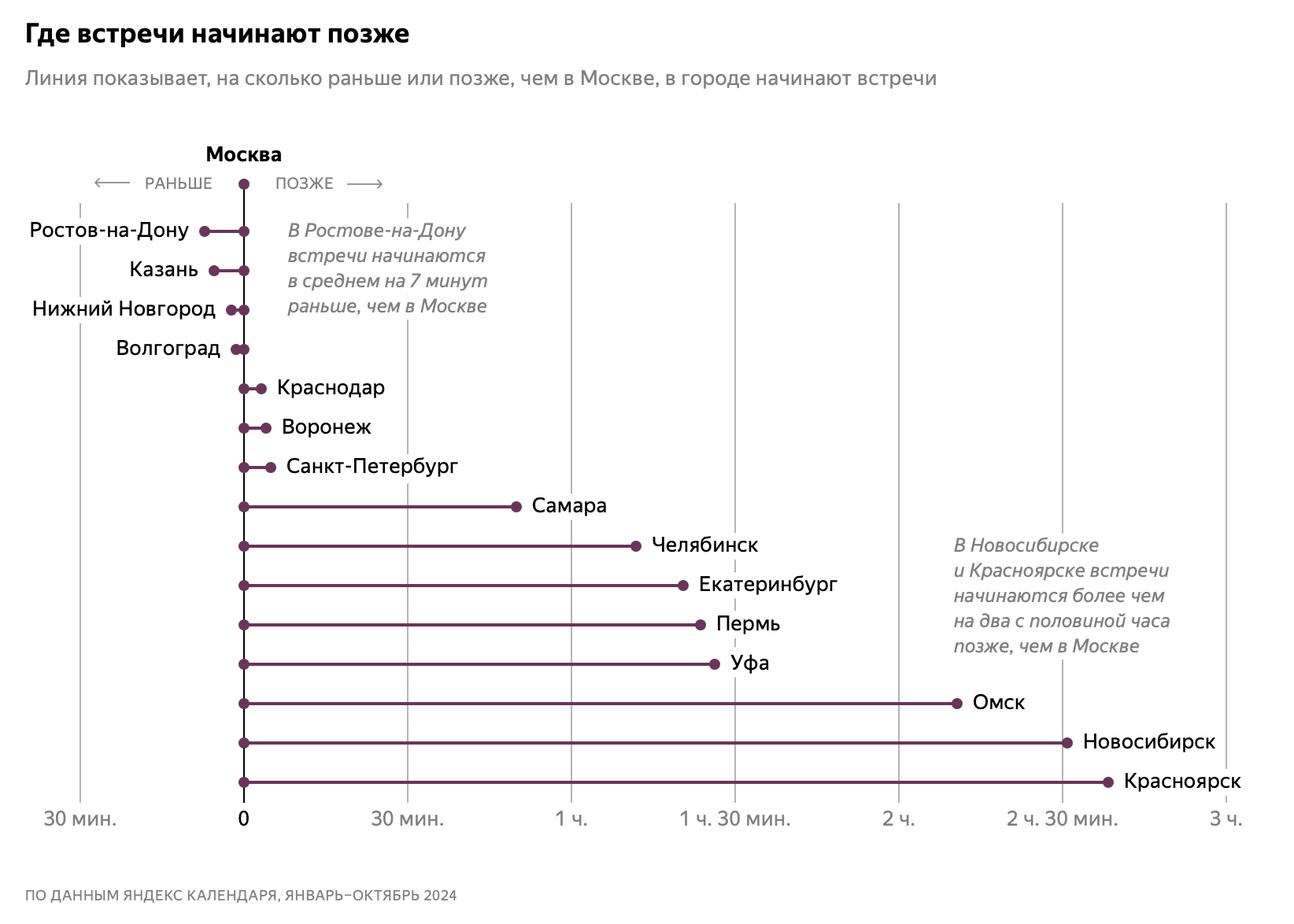
.
Time zones also make adjustments: the farther east you go, the later work meetings start. In the megacities of Central Russia the meeting schedule is approximately the same, but in Yekaterinburg and Chelyabinsk the meetings start 1-1.5 hours later, in Omsk – 2 hours, in Novosibirsk and Krasnoyarsk – 2.5 hours. This is due to the fact that employees in these regions often work with colleagues from the Moscow time zone and adjust to their schedule.
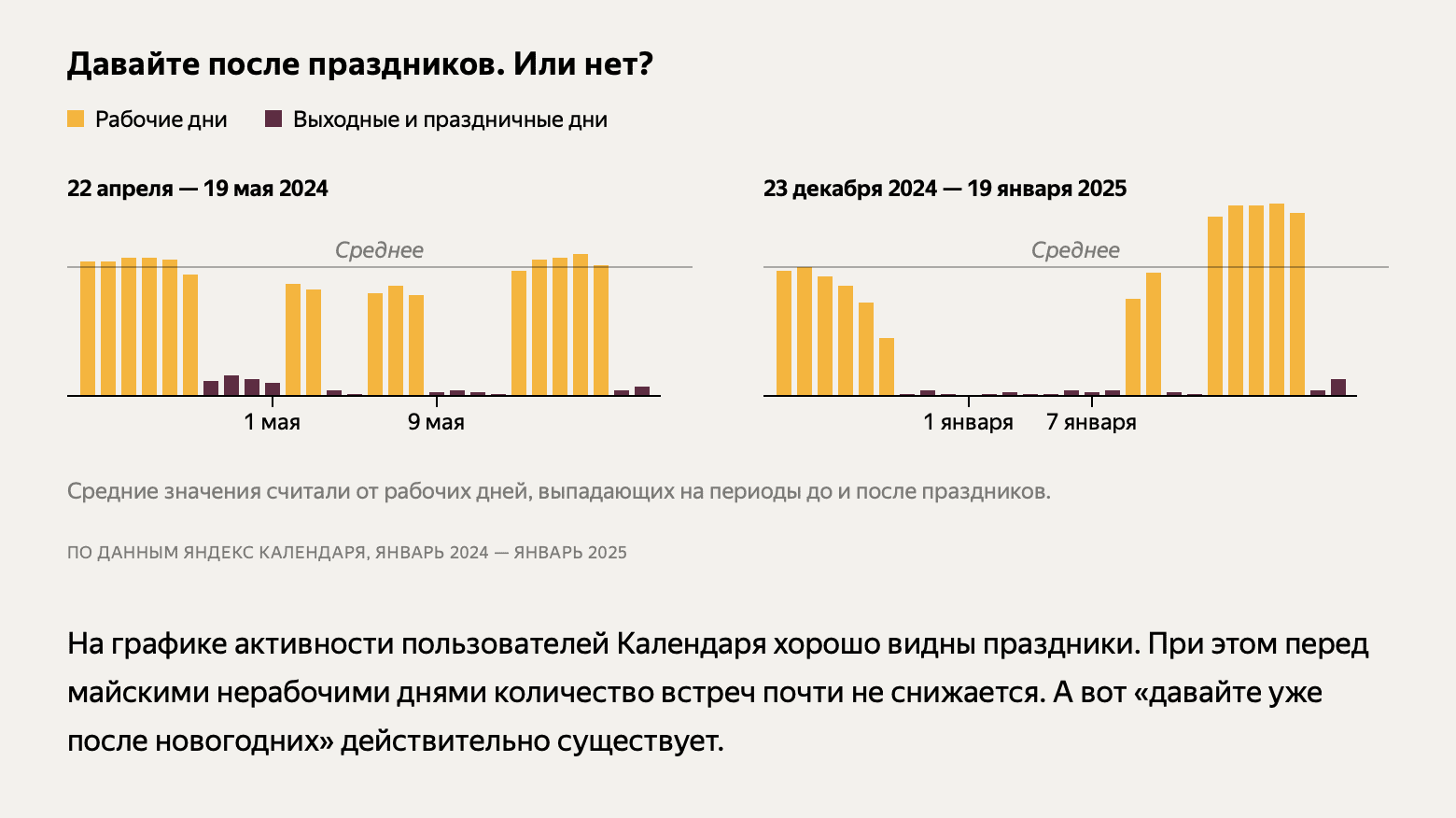
.
The study was based on anonymized data from the Calendar service in Yandex 360 for Business. Analysts took into account only meetings with multiple participants to exclude personal reminders and tasks.








